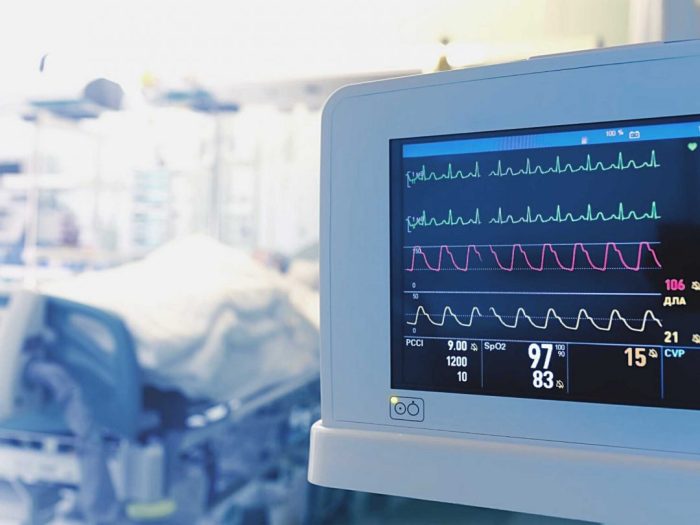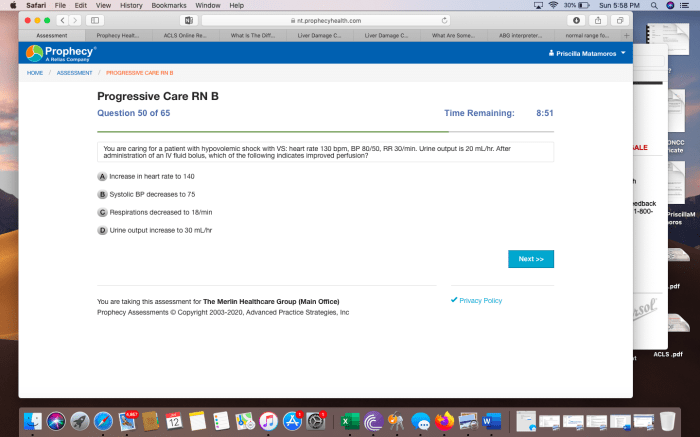Embark on an exploration of Progressive Care RN A V1, a specialized nursing role that plays a pivotal role in patient care. This comprehensive guide unravels the intricacies of this profession, providing a clear understanding of its responsibilities, skills, and career opportunities.
Progressive Care RNs operate in a dynamic environment, providing care to patients with varying acuity levels. They possess a unique blend of clinical expertise and compassionate care, making them indispensable members of the healthcare team.
Progressive Care RN Responsibilities

Progressive Care Registered Nurses (PC RNs) play a vital role in the healthcare system, providing specialized care to patients who require a higher level of monitoring and support than those in general medical-surgical units but are not yet critical enough for the intensive care unit (ICU).
Patient Care Responsibilities
PC RNs are responsible for providing comprehensive care to patients in the progressive care unit. Their duties include:
- Assessing and monitoring patients’ vital signs and overall condition
- Administering medications and treatments
- Providing wound care and other nursing interventions
- Educating patients and families about their condition and treatment plan
- Collaborating with other healthcare professionals to ensure continuity of care
Scope of Practice
The scope of practice for PC RNs is defined by their education, training, and experience. They are licensed to perform a wide range of nursing procedures, including:
- Inserting and managing IV lines
- Performing electrocardiograms (ECGs)
- Interpreting laboratory results
- Administering blood products
- Providing mechanical ventilation support
PC RNs must maintain their knowledge and skills through continuing education and professional development to stay up-to-date on the latest advancements in patient care.
Progressive Care RN Skills and Qualifications

Progressive Care RNs require a specialized skillset to provide critical care to patients with complex medical conditions. These nurses possess advanced clinical knowledge and experience, coupled with essential certifications and a commitment to ongoing professional development.
The role demands a deep understanding of pathophysiology, pharmacology, and advanced nursing interventions. Progressive Care RNs must be proficient in monitoring hemodynamic parameters, interpreting electrocardiograms, and administering medications via various routes, including intravenous infusions and complex drips.
Clinical Knowledge and Experience
- Advanced assessment and monitoring skills
- Proficiency in managing ventilators and other respiratory support devices
- Expertise in managing hemodynamic instability and arrhythmias
- Experience in managing complex medical conditions, such as sepsis, acute respiratory distress syndrome (ARDS), and cardiac arrhythmias
li>Knowledge of pharmacology and medication administration
Certifications and Continuing Education
Progressive Care RNs are expected to maintain current certifications, such as the Critical Care Registered Nurse (CCRN) or the Progressive Care Certified Nurse (PCCN). These certifications demonstrate their specialized knowledge and skills. Additionally, ongoing professional development through conferences, workshops, and online courses is essential to stay abreast of the latest advancements in critical care nursing.
Progressive Care RN Work Environment: Progressive Care Rn A V1

Progressive Care RNs work in a fast-paced and dynamic environment, typically in hospital settings. They provide care to patients who are critically ill or recovering from complex medical procedures. The work environment is characterized by:
- High acuity levels:Progressive Care RNs manage patients with complex medical conditions, often requiring close monitoring and interventions.
- Collaboration and teamwork:Progressive Care Nurses work closely with physicians, respiratory therapists, and other healthcare professionals to provide comprehensive care.
- Technology-rich environment:Progressive Care Units are equipped with advanced monitoring equipment and medical devices, requiring RNs to be proficient in their use.
Patient Population and Acuity Levels
Progressive Care RNs care for a wide range of patients, including:
- Patients recovering from major surgeries, such as cardiac or neurological procedures.
- Patients with acute medical conditions, such as respiratory distress or sepsis.
- Patients requiring specialized monitoring or interventions, such as continuous renal replacement therapy or mechanical ventilation.
The acuity level of patients in Progressive Care can vary, from stable to critically ill, requiring RNs to be adaptable and skilled in managing complex medical conditions.
Collaboration and Teamwork
Progressive Care Nursing emphasizes collaboration and teamwork. RNs work closely with:
- Physicians:RNs assist physicians with patient assessments, treatment planning, and medication administration.
- Respiratory therapists:RNs collaborate with respiratory therapists to manage respiratory care and ventilator support.
- Other healthcare professionals:RNs coordinate with nurses, nursing assistants, and other staff to ensure comprehensive patient care.
Effective communication and collaboration are essential in Progressive Care Nursing, as it allows for seamless care delivery and optimal patient outcomes.
Progressive Care RN Advancement Opportunities
Progressive Care RNs can advance their careers in various directions, expanding their roles and responsibilities within healthcare settings. These opportunities provide pathways for professional growth, leadership development, and specialized expertise.
The most common advancement opportunities for Progressive Care RNs include becoming a Charge Nurse, Nurse Manager, or Clinical Nurse Specialist.
Charge Nurse
Charge Nurses are responsible for overseeing the daily operations of a nursing unit or department. They manage staff, coordinate patient care, and ensure that all aspects of patient care are delivered according to established standards.
To become a Charge Nurse, Progressive Care RNs typically need a minimum of 2-3 years of experience in a critical care setting and a strong understanding of nursing management principles.
Progressive care RNs are responsible for providing advanced nursing care to critically ill patients. They work in close collaboration with physicians and other healthcare professionals to ensure that patients receive the best possible care. If you’re looking for a more in-depth look at the life of a progressive care RN, I highly recommend reading Orange Crush by Yiyun Li . This novel provides a gripping and realistic portrayal of the challenges and rewards of working in this demanding field.
Returning to the topic of progressive care RNs, it’s important to note that they must possess a strong foundation in critical care nursing and be able to work independently and as part of a team.
Nurse Manager
Nurse Managers are responsible for the overall leadership and management of a nursing department or unit. They develop and implement policies and procedures, manage budgets, and oversee the performance of nursing staff.
To become a Nurse Manager, Progressive Care RNs typically need a Bachelor’s or Master’s degree in Nursing, along with several years of experience in a leadership role within a healthcare setting.
Clinical Nurse Specialist
Clinical Nurse Specialists (CNSs) are advanced practice nurses who provide specialized care to patients with complex or chronic conditions. They have a deep understanding of a specific area of nursing, such as critical care, oncology, or geriatrics.
To become a CNS, Progressive Care RNs typically need a Master’s degree in Nursing and additional certification in their chosen specialty.
Progressive Care RN Salary and Benefits

Progressive Care RNs enjoy competitive salaries and comprehensive benefits packages. On average, Progressive Care RNs earn an annual salary of $85,000, which is higher than the national average for Registered Nurses.
In addition to salary, Progressive Care RNs typically receive a benefits package that includes health insurance, dental insurance, vision insurance, life insurance, paid time off, and retirement benefits.
Factors Influencing Salary and Benefits, Progressive care rn a v1
Several factors can influence the salary and benefits of Progressive Care RNs, including:
- Experience:Progressive Care RNs with more experience typically earn higher salaries than those with less experience.
- Location:Progressive Care RNs who work in high-cost-of-living areas typically earn higher salaries than those who work in low-cost-of-living areas.
- Certifications:Progressive Care RNs who hold certifications, such as the CCRN, typically earn higher salaries than those who do not hold certifications.
FAQ Overview
What are the primary responsibilities of a Progressive Care RN?
Progressive Care RNs are responsible for providing comprehensive care to patients with complex medical conditions, monitoring their progress, and administering medications.
What skills are essential for Progressive Care RNs?
Progressive Care RNs require strong clinical skills, critical thinking abilities, and proficiency in monitoring and managing complex medical equipment.
What career advancement opportunities are available for Progressive Care RNs?
Progressive Care RNs can advance to roles such as Charge Nurse, Nurse Manager, or Clinical Nurse Specialist with additional education and experience.